April 2024 - Reflections, Focus, and Aspirations
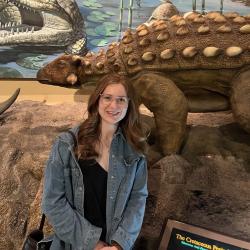
Abby Bower
Sustainability Program Support Coordinator
Office of Sustainability
Length of service at Georgia Tech: 1 year and 5 months
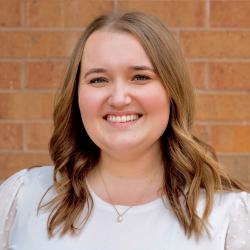
Mattie Hamilton
Recognition Program Manager, Employee Engagement
Georgia Tech Human Resources
Length of service at Georgia Tech: 5 years
Name a recent accomplishment you are most proud of?
Abby: The Office of Sustainability recently published Georgia Tech's first comprehensive Climate Action Plan (CAP). This plan is the Institute's road map to address climate change by cutting campus greenhouse gas emissions in half by 2030 and reaching net-zero emissions by 2050. The plan also focuses on community impacts and offers ways that Georgia Tech can leverage education and research for climate solutions. Many campus community members contributed to the plan, and releasing it was a significant accomplishment for Georgia Tech.
Mattie: Last summer, I spearheaded the development of a comprehensive recognition strategy with five new initiatives spanning 23 total projects, and we have achieved significant progress. A few key areas of focus include infusing recognition into our regular culture, creating “wow” moments along the employee lifecycle, improving service milestone recognition program, and developing outreach/events to inform people leaders. Notably, we launched a recognition website featuring downloadable content and tutorials for managers, and we are launching a “Leading at Tech” module that focuses on the importance of ongoing employee recognition.
What are you currently focused on and why is it important?
Abby: Now that the CAP is out in the world, the Office of Sustainability is focused on implementing the plan. We have already made great progress towards many of the plan's strategies, but I'll be working on setting up a comprehensive tracking system to ensure we make progress towards our goals. We will also coordinate implementation committees to continue to draw on all the brilliant individuals at Georgia Tech as we move to take specific, practical actions. Implementation is important because these are the steps that will help us meet our commitments and tangibly reduce the emissions that drive climate change.
Mattie: I’m currently focused on revolutionizing service milestones and anniversary gifts at Georgia Tech, preparing for a new fiscal year and fresh slate. I am also fine-tuning the Staff Awards nomination process, aiming to maintain our momentum of increased nominations. Additionally, I’m exploring ways to automate parts of the process. These efforts are especially relevant as we transition from the busy season, with the 2024 Staff Awards now concluded and the 2024 Service Recognition Luncheon for the fiscal year underway.
In addition, I’m developing a resource to guide units in establishing monetary awards and recognition programs, aligned with USG policies. I’ll be presenting this resource to the campus before the current fiscal year ends. My work is vital in fostering a culture of appreciation, ensuring that our employees feel valued for their dedication to Georgia Tech, ultimately contributing to higher satisfaction and retention.
What do you look forward to in 2024 - future goals and hopeful achievements?
Abby: We have several exciting projects in progress that directly support the CAP, including increasing renewable energy on campus, working towards cleaner transportation, and improving our waste infrastructure. My hope is that by the end of the year, we will have already begun to reduce emissions at Georgia Tech and that we'll be more prepared to respond to increasingly frequent severe weather events such as storms, flooding, and droughts. I'm also excited to continue to build our climate-related data and emissions inventory so that we have the most accurate picture of campus emissions sources as possible.
Mattie: Looking ahead to the rest of 2024, I'm excited about reaching even more employees and creating a workplace environment where recognition and appreciation are deeply embedded in our culture. I also to continue drive innovative strategies to be a leader in the higher education world when it comes to how our organization approaches recognition. I’m hopeful Georgia Tech will continue to make the investment in our greatest asset… our people!
On a personal note, my bucket list is to visit all 63 National Parks with my husband! We’re going to three parks in Washington this summer (Mt. Rainier, Olympic, and North Cascades), and I look forward to checking more parks off our list this year!
March 2024 - The Future of Georgia Tech's Infrastructure
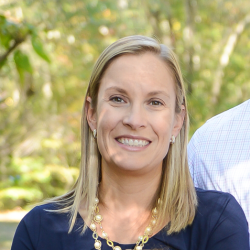
Lisa-Marie Godfrey
Senior Director - Institute Budget Planning & Administration
Institute Budget Planning & Administration
Length of service at Georgia Tech: 20 years
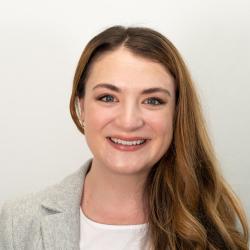
Emily Lasser, AICP
Associate Project Manager
Center for Economic Development Research
Georgia Tech’s Enterprise Innovation Institute
Length of service at Georgia Tech: 2 years and 2 months
What does "innovative infrastructure" mean to you?
Lisa: “Innovative infrastructure” means creating the most sustainable, energy efficient, forward-thinking projects while using Georgia Tech’s resources in order to have the best possible outcome for Georgia Tech now and in the future.
Emily: When I hear the term “innovative infrastructure,” I think of more than just infrastructure in the physical sense. I think of infrastructure that harnesses new technologies, processes, and materials to bridge not only physical barriers, but social, environmental, and economic barriers as well.
How does your role support GT’s expansion?
Lisa: I support Georgia Tech’s expansion by helping to identify available and allowable sources of funds to support each initiative by working with campus partners in Infrastructure and Sustainability, Office of Real Estate Development, and Finance and Planning. I partner with these departments to ensure funds are spent as planned to move these initiatives forward.
Emily: In my role as a project manager at the Center for Economic Development Research (CEDR), a unit of Georgia Tech’s Enterprise Innovation Institute (EI2), I have had the opportunity to support Georgia Tech’s Office of Real Estate Development in pursuing grant funding for the construction of the Westside Community Connector Bridge. The bridge, once constructed, will play a significant role in expanding access for Atlanta’s Westside communities to Georgia Tech’s campus.
What do you look forward to as the campus infrastructure evolves?
Lisa: I look forward to seeing how the campus evolves as we find ways to improve the utilization of existing space, update utility infrastructure, and build new state-of-the-art facilities to support our growing research and student population. In my 20 years at Georgia Tech, there has been amazing growth, and I can’t wait to see what the future holds. We create examples of “innovative infrastructure” with each project accomplished.
Emily: As an urban planner by trade, most of the projects I work on are long-range plans that may not come to fruition for 20+ years. Being able to work on and support infrastructure projects like the Westside Community Connector Bridge is especially exciting, as it is something that once constructed will have an immediate impact on campus and the surrounding community. I look forward to seeing how infrastructure investments like this will expand Georgia Tech’s physical footprint, while also paving the way in innovative project design and delivery.
February 2024 – Technology's Transformative Impact
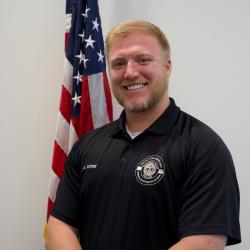
Sgt. Austin Soper
Intel Unit | K-9 Unit
Criminal Investigations Division
Georgia Tech Police Department
Length of service at Georgia Tech: 9 years
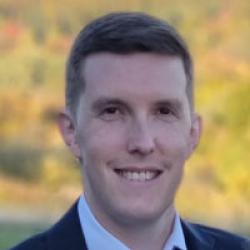
Casey Hayes
Senior Systems Development Engineer
Enterprise Applications and Data Services
Office of Information Technology
Length of service at Georgia Tech: 1 year and 10 months
Why do feel that using technology in your field is important?
Austin: Advances in technology have enabled law enforcement officers to more effectively and efficiently respond to and address crime which ultimately enable us to better serve our communities.
Casey: Using technology, like robotic process automation (RPA), is not just important, it's necessary to reclaim our time and resources. I get such fulfillment seeing the relief and joy we bring to offices that are no longer inundated with repetitive tasks.
How has technology enabled you (and your team) to advance the work you do?
Austin: Since the inception of the Digital Intelligence Unit in 2022, which has become the focal point for all public safety technology utilized by the Georgia Tech Police Department, the case closure rate for criminal investigations has increased by almost 15% compared to 2015.
Casey: As a member of the RPA team, it's really how technology enables us to advance the work of everyone else at Georgia Tech. Through automation and process improvement, we're relieving offices of the rote tasks that preoccupied their weeks, giving them back valuable time to focus on higher-value work.
What do hope to see in the future as technology evolves?
Austin: Advances in artificial intelligence (AI) will allow for the marriage of multiple information systems providing incident commanders with a holistic view of a critical incident without having to switch between separate, individual databases/software, and giving responding officers crucial information before they arrive on scene.
Casey: Disruptive technologies like RPA and Large Language Models (LLMs) challenge the way we've always done things, and that often creates both excitement and uneasiness, but I embrace it. I see it as simply more change – and in technology, if there's one thing that's consistent, it's change. I love seeing Georgia Tech continue to embrace these innovative technologies to improve the lives of its students, faculty, and staff. I hope to see a future where the rote work is supplanted by meaningful human connections, creativity, and critical thinking, where AI and automation free the individual to be the individual.
January 2024 – Setting and Achieving Goals for Success
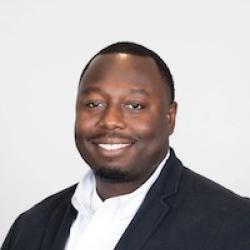
Oliver Samuel
Senior Application Support Analyst
Administrative Services Center
Length of service at Georgia Tech: 3.5 years
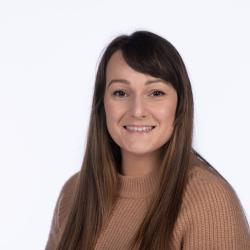
Ryan Lawler
General Manager
BioSpark Labs
Length of service at Georgia Tech: 10 years and 8 months
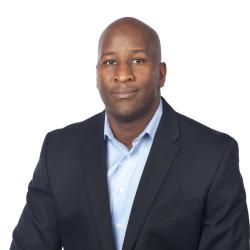
Lou Kaba
Senior Developer of Business Intelligence
Office of Information Technology
Length of service at Georgia Tech: 8 years and 7 months with more than 15 years in the University System of Georgia
Why do you feel that setting goals is important?
Oliver: Setting goals is important because it gives us a direction on what we want to achieve and aligns our actions with our values and strategic goals. The process of setting goals ensures that efforts and resources are directed towards meaningful and relevant outcomes that reflect the core values of an organization.
Ryan: Setting goals helps bring clarity to our priorities, ensures that our efforts are in-line with the A&F and Institute strategic plan, and enables us to reflect on whether we're spending our energy and time on the right tasks to achieve our goals.
Lou: Setting goals is important because goals help provide a clear direction and purpose. Goals act as a roadmap, guiding employees and teams towards their desired outcomes. Setting goals allows for better planning and a sense of accomplishment when milestones are archived.
What organizational goals do you hope to achieve in 2024?
Oliver: As a senior application support analyst, my goal is to uphold A&F's mission of high-quality service and innovation, while being a model of excellence and sustainability. In 2024, I hope to achieve:
- Enhancing technological infrastructure to support the Institute's transformative learning experiences and operational efficiency.
- Improving the service experience by leveraging data analytics and user feedback for continuous improvement and innovation in application support.
Ryan: One of my goals is to promote and lease the newly built shared and private laboratories at BioSpark Labs – the location of choice for life sciences startups in the Atlanta market. We are dedicated to assisting the life science community by offering specialized cleanrooms and Biosafety Level 2 areas equipped with top-notch research equipment that most startups need but are unable to afford.
Another organizational goal is to successfully onboard our newly hired research coordinator for the co-working laboratories and shared equipment facilities at BioSpark Labs. This new departmental position is important for the efficient management, training, and safety of our expanded co-working laboratory space as well as the $1 million investment in research equipment.
Lou: In 2024, my organizational goals involve enhancing communication through established channels, leveraging advanced technologies for reporting, and fostering collaboration with campus units. Additionally, I plan to engage in more knowledge-sharing sessions, such as conferences and presentations, to facilitate the exchange of expertise and insights within and beyond our team.
Are there any personal goals you would like to achieve in 2024?
Oliver: In 2024, I aim to complete my Master of Science in Information Systems degree from Kennesaw State University and use my education to further my career and enhance my leadership skills. Additionally, I am looking forward to welcoming the birth of my son. This event is significant as it marks the growth of my family and the start of a new chapter in my personal life.
Ryan: I've started 2024 with the personal goal of cultivating relationships with family and friends as research indicates the quality of our relationships is the single biggest predictor of our happiness and emotional wellbeing. Another personal goal I've expressed with my team is to show more confidence at work. Being more confident will allow me to achieve my goals more quickly rather than be held back by self-doubt.
Lou: In 2024, my personal goals include achieving a healthy work-life balance and engaging in knowledge-sharing initiatives. These aspirations are driven by a commitment to personal well-being, and continuous learning.
November 2023 - Supporting the Growth of the Institute
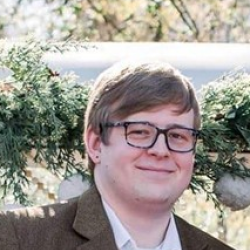
Dylan Holland
Technology Support Analyst II
Administrative Services Center (ASC) – IT Support Services
Length of service at Georgia Tech: 4 years 5 months
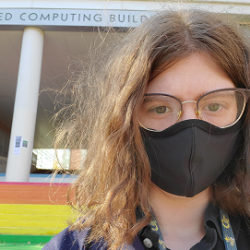
Mary Balsor
Accounting Manager for Invoicing and Financial Reporting
Grants and Contracts Accounting
Length of service at Georgia Tech: 9 years
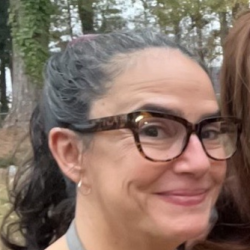
Isabel "Yiny" Lynch
Budget Manager
Institute Budget Planning and Administration
Length of service at Georgia Tech: 24 years
What excites you about Georgia Tech’s growth?
Dylan: As Georgia Tech grows, and more people are brought into our community, it is more important than ever to maintain open communication with one another. I am excited about the prospect of opening and maintaining these lines of communication with everyone to sustain the most efficient workplace for students and employees alike.
Mary: The most exciting parts about GT's growth to me are the interesting ways we are trying to stay ahead of it while managing our existing responsibilities, as well as the content and quality of the research and ideas coming out of our organization! I'm always reading new and exciting contracts describing the work being performed out on campus and I am really looking forward to where things continue on that front. On the growth management side, we're constantly innovating new approaches and reporting metrics to get the most benefit out of our employees time, our current expansion into robotics, and other assistive processes is really looking up!
Yiny: What really excites me about Georgia Tech's growth is the investment the Institute has made in supporting the development of well-rounded individuals and the pride it takes in cultivating a meaningful community presence. I love reading about what we are doing in research, our rankings, and what students accomplish while on campus and after graduation.
How does your role contribute to Georgia Tech’s growth?
Dylan: As the community grows, our team ensures that new departments and services are provided with the technical support they need to establish themselves. This is done by connecting our clients with resources to learn these new systems and procedures, as well as identifying pain points that can be addressed before they become a larger issue.
Mary: My team is responsible for billing and reporting on all RI External Sponsored Project funding (about $30-50M a month). While we are not directly involved in growing the research and other efforts here at Georgia Tech, our work is necessary and essential to the business operations of the organization. Without the draw requests and reporting to the sponsors, additional funding cannot be awarded and projects cannot be completed administratively. Our efforts also impact the sponsor's perception of the organization, since we are often first line contact with them, and we are always working to improve our customer experience with our sponsors so that business between them and Georgia Tech can continue to run smoothly.
Yiny: Within my role in the Budget Office, I support the colleges, student fee activity committee, and several non-academic units to ensure we are good stewards of our resources. Supporting the student activity fee is something that I hold dear. As the student activity Budget Analyst, I am grateful to be able to witness firsthand how our students operate and how they fund and support all students and a myriad of special interests with student activity fees.
Our campus has such a positive foothold in Midtown and the State of Georgia, I want to make sure we invest in our students and take care of our campus growth for many years to come.
How can the greater community (people aside from you) best support campus growth?
Dylan: I think the two best traits to support growth are patience and willingness to embrace change. To improve and maintain continuous forward movement, changes must be made, but with change comes mistakes as we all learn the nuances. We must all be willing to let this change happen and have patience while we learn these nuances, otherwise we will be stuck in place as the world progresses around us.
Mary: Campus growth doesn’t happen by itself, it needs the underlying foundation structure of a lot of knowledgeable and hardworking people to keep it running and continue growing at a sustainable pace. The best way to support the campus’ growth is to support your own growth and wellbeing. Georgia Tech is more than the sum of its parts, and each of you is a very important part of this organization.
Yiny: Over the past 24 years, I have seen a growth in arts, student programs, entertainment, and many ways of engaging staff and faculty. It is a terrific way to encourage individualism while fostering a sense of community. I would love to see an increase in amplifying our students' ingenuity (robotics, architecture, arts).
October 2023 - Sustainability
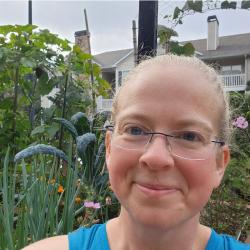
Julia Schmoyer
Organizational Design Specialist
Georgia Tech Human Resources
Length of service at Georgia Tech: 3 months
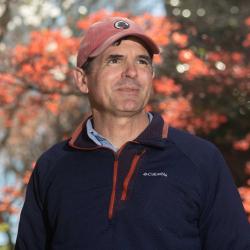
Quentin Holden
Landscape Services
Georgia Tech Infrastructure and Sustainability
Length of service at Georgia Tech: 11.5 years
What does “sustainability” mean to you?
Julia: Working toward creating a mutually beneficial, restorative exchange of resources with nature; intentionally feeding resources where we take them. Making big and small choices with respect for and awareness of the massively complex systems of which we are a part.
Quentin: To be sustainable is to be able to take care of one self. Growing ones own vegetables and food. Relying on one's own resources without depending on others. It's growing food locally and not purchasing food items from thousands of miles away and having them shipped to the USA.
Why do you feel it is important to be sustainable?
Julia: Globally, we are feeling the effect of climate change and resource depletion. We could change so much by limiting what we take from the earth and instead using existing resources in creative and healthier ways. Individually, practicing sustainability increases our connections to each other, the nutrition in our food, the health of our bodies and brains, and our ability to find joy and wonder in the natural world. The better we take care of the earth, the more capable it is of taking care of us.
Quentin: I have been a big advocate of being sustainable locally because it is the core of our country's values.
How do you practice sustainability?
Julia: Living in an apartment, I have to get creative with space. I forage for seeds, grow food and flowers, create habitats for pollinators on my tiny porch and in a community garden, then share it with neighbors and friends. I make compost in a 5-gallon bucket with kitchen scraps and straw, which I then use to revitalize my potting mix (rather than throwing it out to buy more). I educate myself on regenerative growing and communities, and I have dreams to expand in the future.
Quentin: I plant my own vegetables from seeds and babied them to fruition all naturally. It's like a Christmas gift when there's a ripe tomato or squash on the plant. Then the excess I have I give to people in my community.
